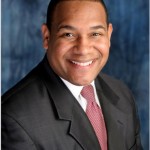The job market is failing the best-educated generation in Western history.
by Colleen Teubner
After graduating from high school, I had two choices: I could earn a college degree while shouldering debt, or struggle in a highly competitive job market without one. I chose the former. And I’m not the only one. My generation is setting records in higher education. According to a 2012 Pew Research Center analysis, one in three of the country’s 25-to-29-year-olds has a bachelor’s degree — making that credential twice as common in the age group as it was in 1971.
We’re also setting records in underemployment. Nearly half of the recent college grads who have found work are in jobs that don’t require a four-year college degree.
We have the necessary knowledge and skills to succeed. So why aren’t we succeeding? For one thing, there aren’t enough professional jobs available. Then, there are loans.
We invest about four years of our lives and up to hundreds of thousands of dollars in our education, and then spend the next decade trying to get out of ever-increasing debt.
For the past two years, there was a 3.4 percent fixed and subsidized interest rate on Stafford loans, a form of student financial aid that more than
10 million students use each year. That rate doubled on July 1. Senate Democrats tried to reinstate the original rate a week later, but failed. Instead, Congress settled on a bipartisan agreement.
Under this new plan, the government will peg the interest rate for new Stafford loans to the financial market by setting it 2.05 percentage points over the 10-year Treasury note rate. As we embark on our careers, college grads who’ve taken out Stafford loans, like myself, could be responsible for paying as much as 8.25 percent, the maximum interest rate allowed by the new arrangement.
Total student debt has ballooned to nearly $1 trillion, nearly triple 2004 levels, according to a Federal Reserve Bank of New York report. If the new plan is enacted, just imagine how much student debt there will be in 2020.
Public opinion polls underscore our dilemma. More than 80 percent of Americans agree that it’s harder for us to find jobs than it was for our parents. But our problems don’t end there. About 70 percent believe that it’s also tougher for our generation to save for the future, pay for college, or buy a home.
So, what happens when we can’t find work and can’t pay our loans? When our parents have the means to help, we call home.
In 1993, 80 percent of parents expected their young children to be financially independent by the age of 22. Times — and the economy — have changed. Today, only 67 percent of parents feel this way. It’s become much more socially acceptable for young adults to remain financially dependent on their parents until the age of 25 or later. Sorry, Mom and Dad.
We’re the most educated generation in American history, yet many of us are unemployed or underemployed. And too many of us are still financially dependent on our parents.
We invest about four years of our lives and up to hundreds of thousands of dollars in our education, and then spend the next decade trying to get out of ever-increasing debt.
Next spring, I’ll be graduating again — this time with a bachelor’s degree. Instead of moving on to graduate school, I’ll be entering the workforce full-time. I need to take time off to work if I hope to pay off my loans in the near future. At this rate, I can’t afford to pay interest.



